Ditapis dengan
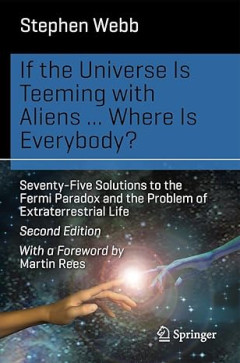
E-book If the Universe Is Teeming with Aliens ... WHERE IS EVERYBODY?: Sevent…
Given the fact that there are perhaps 400 billion stars in our Galaxy alone, and perhaps 400 billion galaxies in the Universe, it stands to reason that somewhere out there, in the 14-billion-year-old cosmos, there is or once was a civilization at least as advanced as our own. The sheer enormity of the numbers almost demands that we accept the truth of this hypothesis. Why, then, have we encount…
- Edisi
- -
- ISBN/ISSN
- 9783319132358
- Deskripsi Fisik
- 442 halaman, ilus.
- Judul Seri
- -
- No. Panggil
- 001.9 WEB i
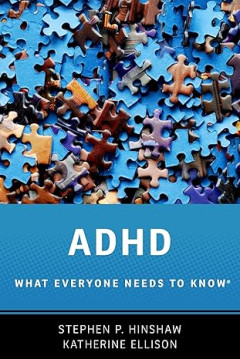
E-book ADHD: What Everyone Needs to Know®
Rates of diagnosis of attention-deficit/hyperactivity disorder (ADHD) are skyrocketing, throughout America and the rest of the world. U.S. rates of youth diagnosis have increased 40% from just a decade ago. Adults with ADHD are now the fastest-growing segment of the population receiving diagnosis and medication. The disorder is painful and sometimes disabling for individuals and tremendously co…
- Edisi
- -
- ISBN/ISSN
- 9780190223793
- Deskripsi Fisik
- 217 halaman
- Judul Seri
- -
- No. Panggil
- 616.89 HIN a
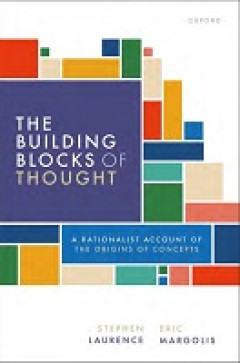
E-book The Building Blocks of Thought: A Rationalist Account of the Origins o…
The human mind is capable of entertaining an astounding range of thoughts. These thoughts are composed of concepts or ideas, which are the building blocks of thoughts. This book is about where all of these concepts come from and the psychological structures that ultimately account for their acquisition. We argue that the debate over the origins of concepts, known as the rationalism-empiricism d…
- Edisi
- -
- ISBN/ISSN
- 9780192898838
- Deskripsi Fisik
- 692 halaman
- Judul Seri
- -
- No. Panggil
- 101 LAU t
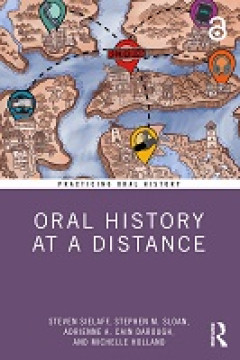
E-book Oral History at a Distance
Oral History at a Distance is the first publication to explore both the ideas behind and application of oral history in remote projects. Since the COVID-19 pandemic, working from a distance is now an ongoing and necessary approach in the oral historian’s toolkit. In this volume, the experienced team members of Baylor University’s Institute for Oral History provide a road map for adapting tr…
- Edisi
- -
- ISBN/ISSN
- 9781040102848
- Deskripsi Fisik
- 249 halaman
- Judul Seri
- -
- No. Panggil
- 302.224 SIE o
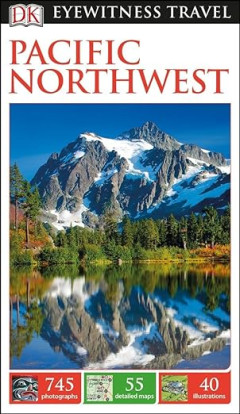
E-book Eyewitness Travel: Pacific Northwest
This newly updated guide covers all the major cities, from Portland, Oregon, to Seattle, Washington, to Vancouver, British Columbia, and provides all the insider tips you need, whether you want to kayak on Lake Ozette in Olympic National Park or go shopping in downtown Seattle's Columbia Center. Explore the culture, history, architecture, beaches, and scenic walks area-by-area.
- Edisi
- -
- ISBN/ISSN
- 9781465457127
- Deskripsi Fisik
- 346 halaman, ilus.
- Judul Seri
- -
- No. Panggil
- 910 BRE e
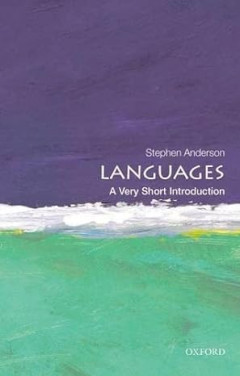
E-book Languages: A Very Short Introduction
How many languages are there? What differentiates one language from another? Are new languages still being discovered? Why are so many languages disappearing? The diversity of languages today is varied, but it is steadily declining. In this Very Short Introduction, Stephen Anderson answers the above questions by looking at the science behind languages. Considering a wide range of different l…
- Edisi
- -
- ISBN/ISSN
- 9780199590599
- Deskripsi Fisik
- 313 halaman
- Judul Seri
- -
- No. Panggil
- 400.0 AND l
E-book Eyewitness Travel: Vienna
teeped in imperial splendour, Vienna delights at every turn. From Roman ruins at the foot of the Hofburg to the tallest tower of Gothic Stephansdom, the city's landmarks are a testament to its rich history. And no list of Vienna's treasures would be complete without its engaging museums and world-famous classical music.
- Edisi
- -
- ISBN/ISSN
- 9780241306178
- Deskripsi Fisik
- 290 halaman, ilus.
- Judul Seri
- -
- No. Panggil
- 910 BRO e
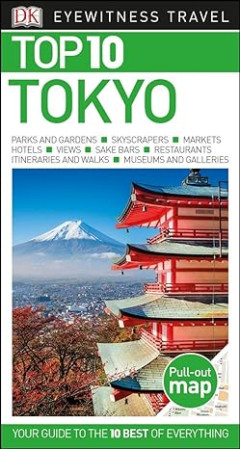
E-book Eyewitness Travel: Top 10 Tokyo
True to its name, this covers all of Tokyo's major sights and attractions in easy-to-use top 10 lists that help you plan the vacation that's right for you.
- Edisi
- -
- ISBN/ISSN
- 9781465459985
- Deskripsi Fisik
- 146 halaman, ilus.
- Judul Seri
- -
- No. Panggil
- 910 MAN e
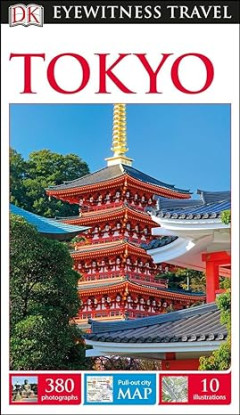
E-book Eyewitness Travel: Tokyo
Explore the busy streets, exciting food, and historic sights of Tokyo. Learn the must-sees of this amazing capital city. Discover DK Eyewitness Travel Guide: Tokyo. • Detailed itineraries and "don't-miss" destination highlights at a glance. • Illustrated cutaway 3-D drawings of important sights. • Floor plans and guided visitor information for major museums. • Guide…
- Edisi
- -
- ISBN/ISSN
- 9781465457318
- Deskripsi Fisik
- 206 halaman, ilus.
- Judul Seri
- -
- No. Panggil
- 910 BUR e
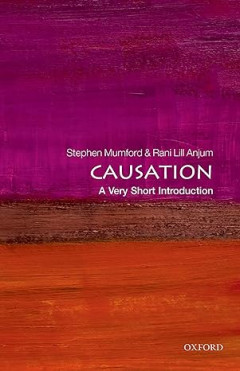
E-book Causation: A Very Short Introduction
Causation is the most fundamental connection in the universe. Without it, there would be no science or technology. There would be no moral responsibility either, as none of our thoughts would be connected with our actions and none of our actions with any consequences. Nor would we have a system of law because blame resides only in someone having caused injury or damage. Any intervention we m…
- Edisi
- -
- ISBN/ISSN
- 9780199684434
- Deskripsi Fisik
- 259 halaman
- Judul Seri
- -
- No. Panggil
- 122 MUM c
E-book Critical Theory: A Very Short Introduction
Critical theory emerged in the 1920s from the work of the Frankfurt School, the circle of German-Jewish academics who sought to diagnose—and, if at all possible, cure—the ills of society, particularly fascism and capitalism. In this book, Stephen Eric Bronner provides sketches of leading representatives of the critical tradition (such as George Lukács and Ernst Bloch, Theodor Adorno and Wa…
- Edisi
- -
- ISBN/ISSN
- 9780199730070
- Deskripsi Fisik
- 145 halaman
- Judul Seri
- -
- No. Panggil
- 301 BRO c
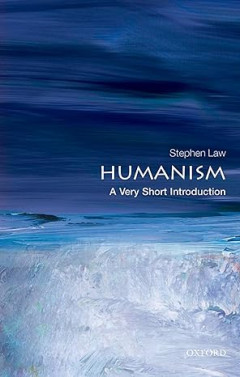
E-book Humanism: A Very Short Introduction
People of faith often argue that without God, there can be no morality. Indeed, without religion, our lives are left without meaning and are likely to degenerate into moral chaos. In this Very Short Introduction, philosopher Stephen Law explains why these claims are false and why humanism--though a rejection of religion--nevertheless provides both a moral basis and a meaning for our lives. Inde…
- Edisi
- -
- ISBN/ISSN
- 9780199553648
- Deskripsi Fisik
- 319 halaman
- Judul Seri
- -
- No. Panggil
- 144 LAW h
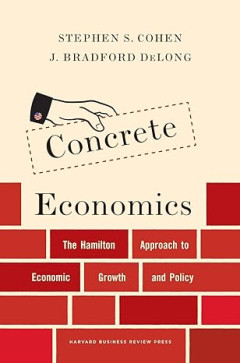
E-book Concrete Economics: The Hamilton Approach to Economic Growth and Policy
History, not ideology, holds the key to growth. Brilliantly written and argued, Concrete Economics shows how government has repeatedly reshaped the American economy ever since Alexander Hamilton’s first, foundational redesign. This book does not rehash the sturdy and long-accepted arguments that to thrive, entrepreneurial economies need a broad range of freedoms. Instead, Steve Cohen an…
- Edisi
- -
- ISBN/ISSN
- 9781422189825
- Deskripsi Fisik
- 240 halaman
- Judul Seri
- -
- No. Panggil
- 330.973 COH c
E-book Japanese Warrior Monks ad 949 - 1603
Buddhism is popularly regarded in the West as being a very peaceful religion, but this way by no means the image presented by the famous warrior monks of medieval Japan. From the 10th century onwards the great monastic foundations of Nara and Mount Hiei maintained private armies that terrified the courtiers and citizens of the capital with their religious and military power. Armed with long nag…
- Edisi
- -
- ISBN/ISSN
- 1841765732
- Deskripsi Fisik
- 68 hlm
- Judul Seri
- -
- No. Panggil
- 206.5752 TUR j
E-book Russian Energy Strategy in the Asia-Pacific : Implications for Australia
Given Australia’s lack of energy security strategy, it is not surprising that the country is void of institutional knowledge and know-how of Russian foreign energy strategy. The ‘lucky country’ as it were, relies entirely on sea lines of communication to the north to supply fuel and to export Australian coal and natural gas. Australia has entered the 2020s as the world’s largest liquefi…
- Edisi
- -
- ISBN/ISSN
- 9781760463397
- Deskripsi Fisik
- 241 hlm
- Judul Seri
- -
- No. Panggil
- 320.12 BUC r
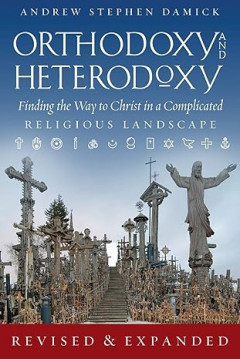
E-book Orthodoxy and Heterodoxy: Finding the Way to Christ in a Complicated R…
This new edition of the bestselling Orthodoxy & Heterodoxy is fully revised and significantly expanded. Major new features include a full chapter on Pentecostalism and the Charismatic movements, an expanded epilogue, and a new appendix ( How and Why I Became an Orthodox Christian ). More detail and more religions and movements have been included, and the book is now addressed broadly to both Or…
- Edisi
- -
- ISBN/ISSN
- 9781944967178
- Deskripsi Fisik
- 494 halaman
- Judul Seri
- -
- No. Panggil
- 230 DAM o
E-book London’s Waterfront and its World, 1666–1800
This volume, covering the period 1666–1800, considers the archaeology of the port of London on a wide scale, from the City down the Thames to Deptford. During this period, with the waterfront at its centre, London became the hub of the new British empire, contributing to the exploitation of people from other lands known as slavery.
- Edisi
- -
- ISBN/ISSN
- 9781803276557
- Deskripsi Fisik
- 302 halaman
- Judul Seri
- -
- No. Panggil
- 930.1 SCH l
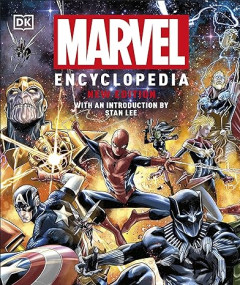
Marvel Encyclopedia, New Edition
Marvel Encyclopedia features: - Authoritative, Marvel-approved text for more than 1,200 Marvel characters. - Most comprehensive reference guide to Marvel Comics characters on the market, from iconic heroes and villains to a multitude of lesser-known, supporting characters - Lavishly illustrated format will appeal to both Marvel Comics aficionados and more casual fans - A to Z and ranked p…
- Edisi
- -
- ISBN/ISSN
- 9781465478900
- Deskripsi Fisik
- 450 halaman, ilus.
- Judul Seri
- -
- No. Panggil
- 701 WIA m
E-book Encyclopedia of Communication Theory
Sociolinguistic research in the 1950s and 1960s had shown how people change the degree of formality of their language as a function of the social contexts in which they find themselves. This was explained in terms of social norms dictating language use. In other words, we should speak very softly and respectfully here, but we can be more boisterous and casual there. Communication (or speech) ac…
- Edisi
- -
- ISBN/ISSN
- 9781412959377
- Deskripsi Fisik
- 1174 hlm
- Judul Seri
- -
- No. Panggil
- 380.03 LIT e
E-book The Universe in a Nutshell
By the century's end, discrepancies in the idea of an all-pervading ether began to appear. It was expected that light would travel at a fixed speed through the ether but that if you were traveling through the ether in the same direction as the light, its speed would appear lower, and if you were traveling in the opposite direction of the light, its speed would appear higher. Yet a series of exp…
- Edisi
- -
- ISBN/ISSN
- 0593048156
- Deskripsi Fisik
- 219 hlm
- Judul Seri
- -
- No. Panggil
- 530.12 HAW t
E-book Samurai Warfare
The Ancestors of the Samurai The word 'samurai', which is commonly used for all varieties of ancient Japanese warrior, actually signifies the military elite of old Japan, a knightly caste who commanded armies, and also led their followers into battle. Their military and political skills eventually enabled them to control civilian governments, developing, through almost constant civil warfare, a…
- Edisi
- -
- ISBN/ISSN
- 1854092804
- Deskripsi Fisik
- 157 hlm
- Judul Seri
- -
- No. Panggil
- 739.7 TUR s
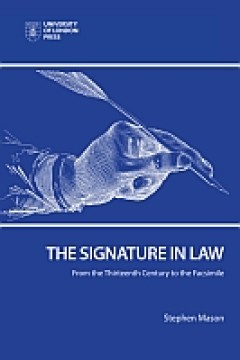
E-Book The Signature in Law: From the Thirteenth Century to the Facsimile
This book explores the judicial development of the concept of the signature from the thirteenth century to the age of the facsimile transmission. It puts the concept of the signature into a broad legal context to set out the purposes that can be attributed to a signature, and to explain the functions a signature is capable of performing. Drawing on cases from common law jurisdictions across the…
- Edisi
- -
- ISBN/ISSN
- 9781911507321
- Deskripsi Fisik
- 122 halaman
- Judul Seri
- -
- No. Panggil
- 342 MAS t
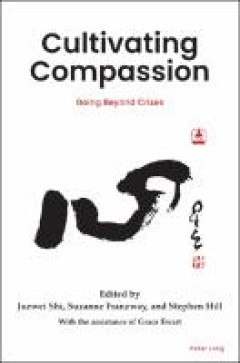
E-Book Cultivating Compassion: Going Beyond Crises
The massive disruptions caused by climate change, the Covid-19 Pandemic, war, and ever-rising inequalities have presented the world with challenges across social and economic life, health and education, policy, politics, and community life. Compassion is a central Buddhist value and practice but is also essential to our survival. Defined as feeling genuine concern about the suffering of others …
- Edisi
- -
- ISBN/ISSN
- 9781803741949
- Deskripsi Fisik
- 9783631868102
- Judul Seri
- -
- No. Panggil
- 181.043 SHI c
E-book Patent Landscape Reoprt on Animal Genetic Resources
This patent landscape report provides an overview of international patent activity for animal genetic resources, in particular those relating to food and agriculture. The empirical analysis of patent activity for animal genetic resources for food and agriculture has received remarkably little attention in the scientific literature. Indeed, in conducting the present research we found no example …
- Edisi
- -
- ISBN/ISSN
- -
- Deskripsi Fisik
- 178 hlm
- Judul Seri
- -
- No. Panggil
- 591.3 OLD p
E-book Phonology in the Twentieth Century
This book is primarily concerned with the history of linguistics, but it is notsimplyaboutthe history of linguistics. For one thing, positions are taken belowon issues which (while they arise in a historical context) are discussed for theirown sake, such as the motivation for assuming a significant level of phoneticrepresentation in linguistics. Further, while the text traces the development of…
- Edisi
- -
- ISBN/ISSN
- 9783961103270
- Deskripsi Fisik
- 545 hlm
- Judul Seri
- -
- No. Panggil
- 414 AND p
E-book Rethinking Health Care Ethics
The audience for this book is anyone who has experienced a discrepancy between their own individual thinking about ethics—whether in med-icine, nursing, social work, psychology, or other fields—and what they encounter in the academically oriented, comparatively theoretical dis-cussions of ethics as presented in grand rounds, at conferences, and in profes…
- Edisi
- -
- ISBN/ISSN
- 9789811308307
- Deskripsi Fisik
- 177 hlm
- Judul Seri
- -
- No. Panggil
- 171.7 SCH r
E-book The Life of Breath in Literature, Culture and Medicine Classical to C…
This open access book studies breath and breathing in literature and culture and provides crucial insights into the history of medicine, health and the emotions, the foundations of beliefs concerning body, spirit and world, the connections between breath and creativity and the phenomenology of breath and breathlessness. Contributions span the classical, medieval, early modern, Romantic, Victori…
- Edisi
- -
- ISBN/ISSN
- 2634-6443
- Deskripsi Fisik
- 558 hlm
- Judul Seri
- -
- No. Panggil
- 902 ADE t
E-book Anthology of Classical Myth
Since the stories told by poets and other early writers represented the major evidence for the events for which the Greeks had no written records, historians could not escape considering the role of myth in history. One approach—represented here by Herodotus’ and Thucydides’ analyses of the Trojan, Persian, and Peloponnesian Wars—was to seek to distinguish where myth left off and histor…
- Edisi
- 2nd ed
- ISBN/ISSN
- 978-1-62466-499-1
- Deskripsi Fisik
- 608 hlm
- Judul Seri
- -
- No. Panggil
- 820 TEA a
E-book Encyclopedia of Volcanoes
The Encyclopedia of Volcanoes is a complete reference guide, providing a comprehensive view of volcanism on the Earth and on the other planets of the Solar System that have exhibited volcanic activity. It is the first attempt to gather in one place such a vast store of knowledge on volcanic phenomena. The volume addresses all aspects of volcanism, ranging from the generation of magma, its trans…
- Edisi
- -
- ISBN/ISSN
- -
- Deskripsi Fisik
- 1442 hlm
- Judul Seri
- -
- No. Panggil
- 551.21 SIG e
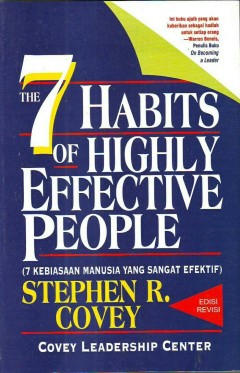
The 7 Habits of Highly Effective People (7 Kebiasaan Manusia yang Sangat Efek…
- Edisi
- Edisi Revisi
- ISBN/ISSN
- 9789795836032
- Deskripsi Fisik
- 384 hlm; 16 x 24,5 cm
- Judul Seri
- -
- No. Panggil
- 158.1 STE t
- Edisi
- Edisi Revisi
- ISBN/ISSN
- 9789795836032
- Deskripsi Fisik
- 384 hlm; 16 x 24,5 cm
- Judul Seri
- -
- No. Panggil
- 158.1 STE t
E-book Eden in the East
Pada akhir Zaman Es, banjir yang disebutkan dalam kitab suci memang benar-benar terjadi dan menenggelamkan paparan benua Asia Tenggara untuk selamanya. Hal itulah yang menyebabkan penyebaran populasi dan tumbuh suburnya berbagai budaya Neolitikum di Cina, India, Mesopotamia, Mesir, dan Mediterania timur. Akar permasalahan dari pemekaran besar peradaban di wilayah subur di Timur Dekat Kuno, bera…
- Edisi
- -
- ISBN/ISSN
- -
- Deskripsi Fisik
- 860 hal
- Judul Seri
- -
- No. Panggil
- 959 OPP e

Electric Machinery
- Edisi
- 5th ed
- ISBN/ISSN
- 0071129464
- Deskripsi Fisik
- xi; 585 hal; 16 x 23 cm
- Judul Seri
- -
- No. Panggil
- 621.31 FIT e
- Edisi
- 5th ed
- ISBN/ISSN
- 0071129464
- Deskripsi Fisik
- xi; 585 hal; 16 x 23 cm
- Judul Seri
- -
- No. Panggil
- 621.31 FIT e
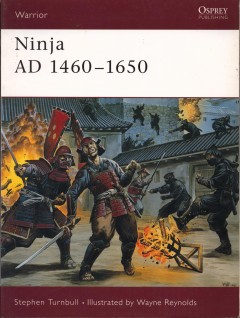
Ninja, A.D. 1460-1650
The ninja were the secret agents and assassins of feudal Japan and they remain a subject of enduring fascination. They first arose during the power struggles of 9th and 10th century Japan - where they catered for an increasing demand for spies, informants and assassins - and were used until the mid-1600s when, due to a campaign to destroy them, disappeared.
- Edisi
- -
- ISBN/ISSN
- 978-1-84176-525-9
- Deskripsi Fisik
- ilus 64 hlm. 18x25 cm
- Judul Seri
- -
- No. Panggil
- 355 TUR n
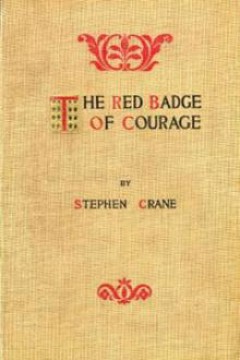
E-book The Red Badge of Courage
Following the experiences of 19-year-old Henry Fleming, a recruit in the American Civil War, the story is about the meaning of courage. One of the most influential American anti-war stories ever written.
- Edisi
- -
- ISBN/ISSN
- -
- Deskripsi Fisik
- 134 p. 706 KB
- Judul Seri
- -
- No. Panggil
- 823 STE t
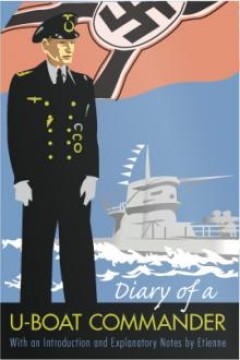
E-book The Diary of a U-boat Commander
The M.S. of this amazing diary of a German U-Boat Commander has fallen into our hands under somewhat unusual and mysterious circumstances, the name of the writer being withheld for reasons which will be readily apparent to all who read his astounding experiences. It is, however, a story so thrilling and sensational that we have no hesitation in offering it as it stands to the public, kept so lo…
- Edisi
- -
- ISBN/ISSN
- -
- Deskripsi Fisik
- 142 p. 765 KB
- Judul Seri
- -
- No. Panggil
- 823 STE d

Everyday greatness : inspiration for a meaningful life
- Edisi
- -
- ISBN/ISSN
- -
- Deskripsi Fisik
- -
- Judul Seri
- -
- No. Panggil
- 155.2 COV e
- Edisi
- -
- ISBN/ISSN
- -
- Deskripsi Fisik
- -
- Judul Seri
- -
- No. Panggil
- 155.2 COV e

First thing First :Dahulukan yang utama.
- Edisi
- ed. 2
- ISBN/ISSN
- 979-605-289-x
- Deskripsi Fisik
- xxii; 450 hlm;15 x 23 cm
- Judul Seri
- -
- No. Panggil
- 158 COV d
- Edisi
- ed. 2
- ISBN/ISSN
- 979-605-289-x
- Deskripsi Fisik
- xxii; 450 hlm;15 x 23 cm
- Judul Seri
- -
- No. Panggil
- 158 COV d

Why good things happen to good people : 10 Pedoman praktis hidup lebih sehat,…
- Edisi
- cet. 1
- ISBN/ISSN
- 978-979-8994-47
- Deskripsi Fisik
- 412 hlm;;15,5 x 23,5 cm
- Judul Seri
- -
- No. Panggil
- 128 POS w
- Edisi
- cet. 1
- ISBN/ISSN
- 978-979-8994-47
- Deskripsi Fisik
- 412 hlm;;15,5 x 23,5 cm
- Judul Seri
- -
- No. Panggil
- 128 POS w

The 7 habits of highly effective people : Powerful lessons in personal change
In The Habits of Highly Effective People, author Stephen R. Covey present a holistic, integrated, principle-centered approach for solving personal and professional problems. With penetrating insight and pointed anecdotes, Covey reveals a step-by-step pathway for living with fairness, integrity, service, and human dignity principles that give us the security to adapt to change and the wisdom and…
- Edisi
- 22
- ISBN/ISSN
- 6780203269513
- Deskripsi Fisik
- 372 pages; illus. 14 x 21,5 cm
- Judul Seri
- -
- No. Panggil
- 158 COV t
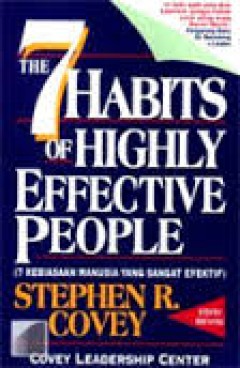
Tujuh (7) kebiasaan manusia yan sangat efektif = The 7 Habits of highly effec…
Dalam Tujuh Kebiasaan Manusia yang sangat Efektif, menyajikan sebuah pendekatan yang menyeluruh, terpadu, dan berpusat pada prinsip untuk memecahkan masalah pribadi dan profesional. Dengan wawasan yang tajam dan anekdot yang terarah, Covey menyingkapkan sebuh jalan langkah demi langkah untuk hidup dengan keadilan, integritas, kejujuran, dan martabat manusia prinsip-prinsip yang memberi kita ja…
- Edisi
- cet. 2
- ISBN/ISSN
- 9786027228955
- Deskripsi Fisik
- 472 hlm.; illus. 14 x 21 cm
- Judul Seri
- -
- No. Panggil
- 158 COV t

Tujuh (7) kebiasaan remaja yang sangat efektif : Karunia sejati untuk jiwa re…
- Edisi
- cet. 1
- ISBN/ISSN
- 978-602-200-653
- Deskripsi Fisik
- 356 hlm; illus;16,5 x 24,5 cm
- Judul Seri
- -
- No. Panggil
- 158 COV t
- Edisi
- cet. 1
- ISBN/ISSN
- 978-602-200-653
- Deskripsi Fisik
- 356 hlm; illus;16,5 x 24,5 cm
- Judul Seri
- -
- No. Panggil
- 158 COV t

Tujuh (7) kebiasaan manusia yang sangat efektif ed.revisi
- Edisi
- cet. 1
- ISBN/ISSN
- 978-979-583-603
- Deskripsi Fisik
- 384 hlm; illus;16 x 24,5 cm
- Judul Seri
- -
- No. Panggil
- 158 COV t
- Edisi
- cet. 1
- ISBN/ISSN
- 978-979-583-603
- Deskripsi Fisik
- 384 hlm; illus;16 x 24,5 cm
- Judul Seri
- -
- No. Panggil
- 158 COV t

Everyday greatness: Inspirasi untuk mencapai kehidupan yang bermakna
- Edisi
- -
- ISBN/ISSN
- 978-979-22-2864
- Deskripsi Fisik
- xx; 542 hlm;;15 x 23 cm
- Judul Seri
- -
- No. Panggil
- 155.2 COV e
- Edisi
- -
- ISBN/ISSN
- 978-979-22-2864
- Deskripsi Fisik
- xx; 542 hlm;;15 x 23 cm
- Judul Seri
- -
- No. Panggil
- 155.2 COV e
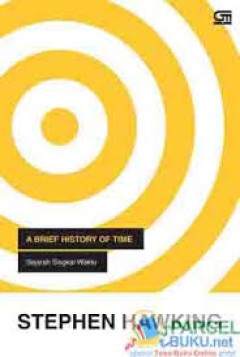
Sejarah singkat waktu = A brief history of time
Stephen Hawking menjelaskan sejarah terbentuknya ruang dan waktu serta keterkaitannya dengan alam semesta melalui ilmu fisika. Untuk menjelaskan ruang dan waktu ini, Stephen Hawking mulai dari awal pemikir-pemikir hebat dari masa lampau yang sedang melakukan pemikiran luar biasa mengenai bentuk dan gambaran alam semesta ini. Mulai dari Aristoteles (340 SM) dengan teori bahwa bumi itu berb…
- Edisi
- cet. 4
- ISBN/ISSN
- 9789792292121
- Deskripsi Fisik
- xi + 290 hlm.; illus. 13,5 x 20 cm
- Judul Seri
- -
- No. Panggil
- 502 HAW s
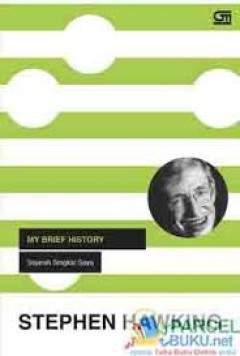
Sejarah singkat saya = My brief history
“STEPHEN HAWKING telah memukau para pembaca sedunia dengan serangkaian buku laris yang menjelajahi misteri alam semesta. Sekarang, untuk pertama kalinya, sang ahli kosmologi paling brilian pada zaman kita ini menoleh ke dalam dirinya untuk meninjau kehidupannya dan evolusi intelektualnya sendiri. My Brief History menceritakan perjalanan luar biasa Stephen Hawking, dari masa kecilnya di Londo…
- Edisi
- cet. 2
- ISBN/ISSN
- 9786020300061
- Deskripsi Fisik
- 174 hlm.; illus.
- Judul Seri
- -
- No. Panggil
- 925 HAW s
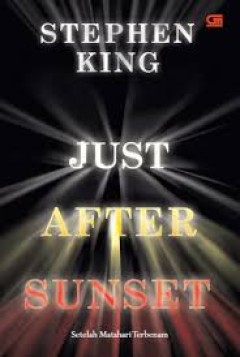
Setelah matahari terbenam = Just after sunset
Koleksi cerpen yang brilian dari Stephen King, Siapa selain Stephen King yang bisa mengubah toilet portabel menjadi kanal kelahiran belendir, atau bar pinggir jalan menjadi tempat untuk cinta abadi? Seorang penjual buku yang marah mengangkut seorang pembonceng bisu, tanpa menyadari bahwa pria itu mendengar semua ocehannya dengan sangat jelas. Atau rutinitas olahraga dengan sepeda stasioner, yan…
- Edisi
- cet. 1
- ISBN/ISSN
- 9786020300610
- Deskripsi Fisik
- 576 hlm. 13,5 x 20 cm
- Judul Seri
- -
- No. Panggil
- 823 KIN s

TUJUH (7) KEBIASAAN MANUSIA YANG SANGAT EFEKTIF - ED. REVISI
- Edisi
- cet. 1
- ISBN/ISSN
- 978-979-583-603
- Deskripsi Fisik
- 384 hlm; illus;16 x 24,5 cm
- Judul Seri
- -
- No. Panggil
- 158 COV t
- Edisi
- cet. 1
- ISBN/ISSN
- 978-979-583-603
- Deskripsi Fisik
- 384 hlm; illus;16 x 24,5 cm
- Judul Seri
- -
- No. Panggil
- 158 COV t

BEING THE BOSS: HOW TO MAKE A SUCCESS OF YOUR SMALL BUSINESS
- Edisi
- -
- ISBN/ISSN
- 0-85969-557-3
- Deskripsi Fisik
- 112 hlm;22 x 13,5 cm
- Judul Seri
- -
- No. Panggil
- 658 FIT b
- Edisi
- -
- ISBN/ISSN
- 0-85969-557-3
- Deskripsi Fisik
- 112 hlm;22 x 13,5 cm
- Judul Seri
- -
- No. Panggil
- 658 FIT b

PEMBANGUNAN EKONOMI DI DUNIA KETIGA - 1
- Edisi
- ed.8
- ISBN/ISSN
- 979-688-995-1
- Deskripsi Fisik
- xxiii; 583 hlm; illus;17,5 x 25 cm
- Judul Seri
- -
- No. Panggil
- 338.9 TOD p
- Edisi
- ed.8
- ISBN/ISSN
- 979-688-995-1
- Deskripsi Fisik
- xxiii; 583 hlm; illus;17,5 x 25 cm
- Judul Seri
- -
- No. Panggil
- 338.9 TOD p
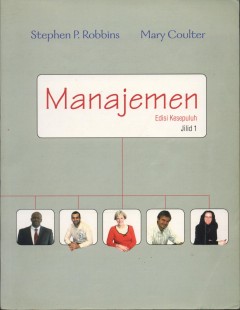
 Karya Umum
Karya Umum  Filsafat
Filsafat  Agama
Agama  Ilmu-ilmu Sosial
Ilmu-ilmu Sosial  Bahasa
Bahasa  Ilmu-ilmu Murni
Ilmu-ilmu Murni  Ilmu-ilmu Terapan
Ilmu-ilmu Terapan  Kesenian, Hiburan, dan Olahraga
Kesenian, Hiburan, dan Olahraga  Kesusastraan
Kesusastraan  Geografi dan Sejarah
Geografi dan Sejarah